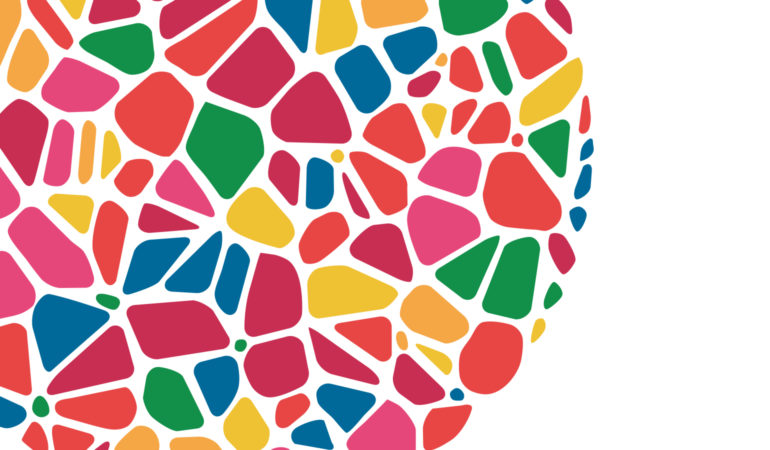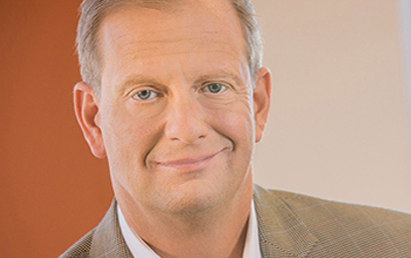We live in a divisive world. So much of what we see and hear as part of the socio-political narrative is filled with argument and contention that polarizes discussion, ideas, and sometimes even people. Whenever I watch the news, it almost seems like the world stage has become my therapy office, with a high conflict couple, flooded with emotion, unable to talk to each other. And not surprising, the divisive, polarizing social discourse seems to be just as effective as any of my high conflict clients’ dialogue.
Even for therapists, it can be hard to help clients and ourselves be able to have respectful dialogue across this divide, especially when it comes to emotionally charged issues such as race, religion, and sexual orientation. But we can and we must do so; respectful dialogue is the best way to bring about understanding, mutual support, and cooperation to bring about change and progress. It may sound difficult, or even impossible to do so, but fortunately there are some great examples of therapists who do just that.
One such example is the Reconciliation and Growth Project (RGP). This is a group of mental health professionals and academics, based in Salt Lake City, Utah, who have come together to bridge the divide and found some common ground with one another. The group is made up of five individuals who primarily represent the LGBTQIA+ perspective and 4 individuals representing a religious conservative perspective. This group meets weekly for two hours to discuss a variety of issues, with the goal to gain mutual understanding through respectful dialogue with each other.
The group was originally created in March of 2013 after a workshop on best therapeutic practices to address sexual orientation and non-traditional gender identity. There were a lot of concerns about how therapists were helping clients reconcile their sexual orientation and religious beliefs. Some therapists, while well intentioned, may have been engaging in therapeutic practices that were harmful for clients; both helping a client explore and affirm their sexual orientation, as well as being congruent with their faith tradition or religious world view. A small group of therapists wanted to engage in an ongoing discussion around this topic, and thus RGP was created.
At the outset, having a group comprised of passionate and dedicated mental health workers from opposite sides of the socio-political spectrum may seem like an impossible group to be able to find consensus on much of anything, let alone anything related to faith-based values and sexual and gender diversity. Could they create enough safety and respect within the group to effectively have a productive dialogue? Was there anything they could agree upon? Would the group fizzle out and end?
Although I have never been an official part of the group, I have had a front row seat, watching them come together as a group, and progress into what they are now. I have attended their presentations, trainings, and watched them as they advocate for more respectful dialogue. And although it hasn’t been easy, they have been very successful, especially compared to normal social discourse on the subject.
One of their biggest achievements is creating standards, Resolving Distress Between Faith-Based Values and Sexual and Gender Diversity: An Abbreviated Guide (RGP, 2017), for working with anyone who is struggling to resolve faith-based values and their sexual orientation or gender identity. This document outlines important and ethical principles such as: “It is essential to provide a safe environment for individuals to explore, define, and articulate their own identity in order for each to discover their authentic self;” and “approaches are inherently harmful if they….limit the exploration of sexual orientation, gender, faith, and cultural identity and expression possibilities (personal communication, September 21, 2021).
Two core principles, “doing no harm” and “facilitate self-determination” were the foundation for the work RGP has done. The guidelines provide context and a rationale for each principle.
These standards help clinicians promote safety and respect to any clients who might be feeling their way through a complex journey between sexual orientation, gender identity and faith-based values or a religious world view. The standards are also meant to provide a framework for licensing boards to regulate therapy in this field and help de-escalate the divisive discourse around legislation issues.
Jeff Bennion, LAMFT, is a part-time therapist and has been a member of the Reconciliation and Growth project since the spring of 2018. He notes (personal communication, October 12, 2021):
My work with RGP has helped me immensely as a clinician. It has helped me see where my blind spots and biases might be potentially harmful. As therapists, we all come with blind spots, and these can end up harming clients. Being in a constructive dialogue with people with dramatically different values, backgrounds, and life experiences has helped me see some of my own blind spots and helped me avoid harming certain clients. This is important to me, because I often see clients who are harmed by therapists who tell them, for example, they can never be happy in a traditional religion, or that it is fruitless to remain heterosexually married because it is an inauthentic and unsustainable life path. My own experience, and many others, have taught me that this is not always the case. They are truly harmed by this because this course of their life has meaning, and as we know from the Four Options Survey results, there are many who find living this way satisfying and personally meaningful.
Two core principles, “doing no harm” and “facilitate self-determination” were the foundation for the work RGP has done. The guidelines provide context and a rationale for each principle. For example, clinicians may unintentionally do harm such as by reinforcing “a belief that either identifying as religious or as lesbian, gay, bisexual, or transgender (LGBT) must be avoided” and promoting restriction from “education or exploration regarding a wide range of options” (personal communication, September 21, 2021). The guidelines also provide practical ways that clinicians can prioritize their client’s right to self-determination. “Understand and respect the importance of religion and spirituality in the lives of clients, to provide/offer meaning, tradition, culture, identity, community, health, satisfaction, and diversity” (RGP, 2017, p. 18).
These two core principles are fascinating to me. I do not disagree with these principles at all—just the opposite—I find them to be a clear and succinct statement of what is most important when working with this population. To me, the reason why these core principles are so fascinating is that these two groups from opposing world views shared the belief that these fundamental principles are important.
It is completely isomorphic with the high conflict couple, who can’t seem to understand each other, even the most important and cherished values or memories, because their conflict is getting in the way.
One of the consequences of the divisive and polarizing discourse that seems to dominate our social, academic, and political narrative, is that it creates artificial barriers to find common ground, and mutually shared principles. It is so easy to vilify and demonize an opposing group, without being able to recognize any common or shared values. It is completely isomorphic with the high conflict couple, who can’t seem to understand each other, even the most important and cherished values or memories, because their conflict is getting in the way.
RGP decided to focus on what they could agree on, instead of what they disagree on. This was key and allowed them to discover that they shared a lot in common with each other. They found these two core principles as the foundation for their work, to be able to create their guidelines for ethical and professional conduct with this population. They also found they agreed upon recommendations for the main overarching goal of therapy: “All sexual orientations, gender identities, and religious/spiritual and other ideological values have the potential to be lived in healthy and unhealthy ways. The focus should be on improving functioning and changing unhealthy expressions” (RGP, 2017, p. 9).
In my opinion, finding common ground is RGP’s biggest success. The guidelines are a tremendous milestone and an important guide for clinicians, policy makers and licensing boards. But for me, even more importantly, is that this diverse group has been able to engage in meaningful and respectful dialogue. They have provided an example of not only what can be done, but what needs to be done, for individuals, couples, families, and communities to move forward in finding solutions to the host of complex challenges that we all face. Not only can we not do it alone, there is tremendous strength in finding unity amidst diversity.
Bennion remarked (personal communication, October 12, 2021):
At times, the process has been personal and painful. We have had our share of hurt feelings, and even tears. But as each of us has committed to work through these feelings, and following our protocols for understanding and managing emotionally strong disagreements, we have grown much closer in trust and mutual affection. As we have recognized each other’s mutual humanity, we have managed to find common ground, and hopefully this is also improving the profession as a whole; much more common ground than was initially apparent. And all of us were able to do this without having to surrender the values and beliefs that are important to us, and over which we still fundamentally disagree.
Make no mistake, creating a safe environment and engaging in respectful dialogue is no easy task. Members of RGP openly share how difficult the experience of participation has been. These are passionate professionals who care not only for their clients and communities, but also are personally living amidst the socio-political clash of values regarding these issues. It is easy to be triggered and become flooded with emotion. It requires tremendous courage to be vulnerable and reach out to someone else for mutual understanding.
As trailblazers, RGP has been innovative in finding ways to be able to come together and find mutual understanding discussing emotional and polarizing topics. In order to help, RGP has created some protocols to help facilitate similar discussions. They have outlined “peacemaking protocol,” designed to teach and model the principles and skills used to bring about respectful dialogue. The peacemaking protocols use various principles and practices, such as: how to create safety, inclusion vs. exclusion, steps to explore differences, debate vs. dialogue, and how to seek a win-win outcome, to name just a few. It is hoped that others can use these same tools to help create similar experiences regarding a variety of difficult topics.
It is refreshing to see a diverse group of people be able to come together and find common ground. While divisive contention and polarization permeates our society, we can rise above it and engage life in a similar way we help our clients do so; with respect, curiosity, and understanding. This doesn’t mean we have to agree with others—but we can disagree without being disagreeable. In order to move forward and find better solutions to the host of problems and issues that face us, more respectful dialogue will go a long way to help us find mutual support, understanding and cooperation. RGP provides an important example we can all follow.
In my opinion, finding common ground is RGP’s biggest success.

Benjamin Erwin, PhD, LMFT, is an AAMFT Professional Member holding the Clinical Fellow and Approved Supervisor designations, and Adjunct Faculty, Utah Valley University.
REFERENCES
All RGP documents and other information can be found at reconciliationandgrowth.org.
Reconciliation and Growth Project. (2017). Resolving distress between faith-based values and sexual and gender diversity: A guide for mental health professionals. Retrieved from https://reconciliationandgrowth.org/wp-content/uploads/2017/04/RPG-Guide-4-26.pdf
Other articles
Healing Systems: Therapy with Mandated Clients
Mandated clients are often navigating many systems at once. These systems include their families, their schools, the Department of Juvenile Justice (DJJ)/Juvenile Services Department (JSD), etc. In addition to navigating multiple systems, mandated clients may be experiencing levels of trauma (or Adverse Childhood Experiences – “ACEs”), individually or within the family system.
Edmound M. Davis, MS and Franchesca Meyers, MS
Times Are Changing
It has been 12 years since Montana, as the last state, obtained licensure (literally days behind West Virginia). Since that time, AAMFT has worked with divisions and more recently, Family TEAM to strengthen the license throughout the United States.
Tracy Todd, PhD



